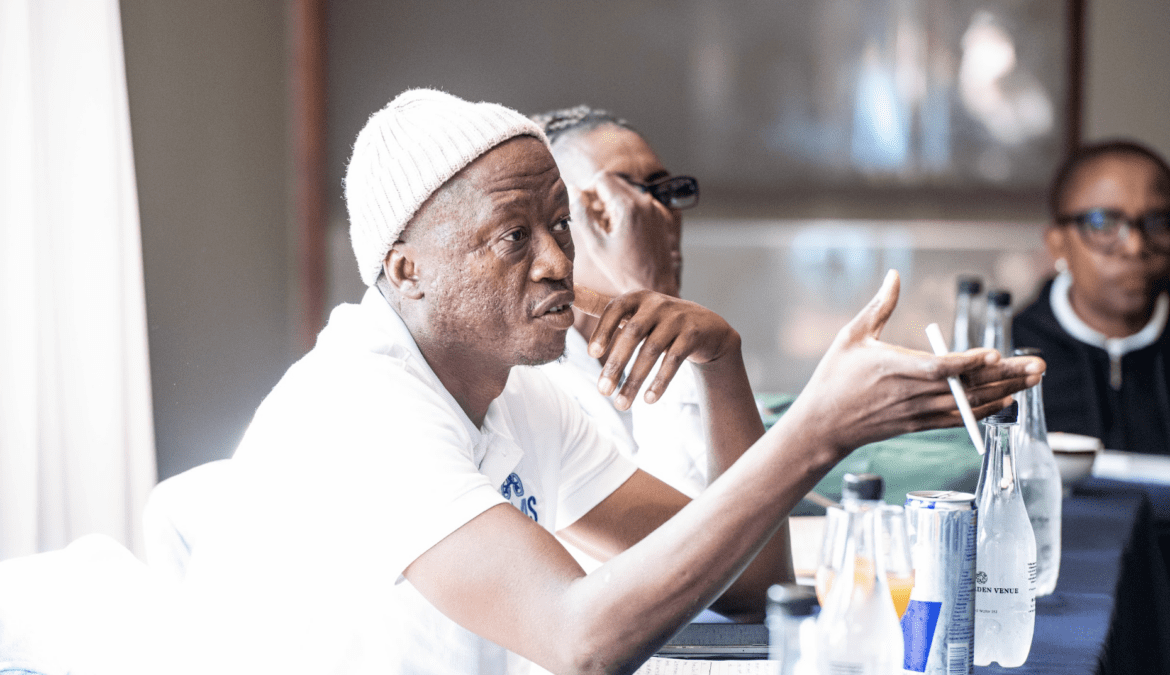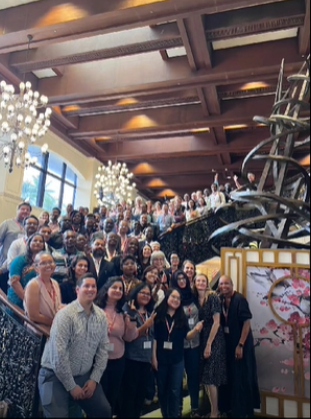World leaders have committed to end TB as a public health threat by 2030. It’s an ambitious goal that requires providing life-saving treatment for up to 45 million people by 2027; providing TB preventive therapy for another 45 million people, including household contacts, children, and people living with HIV; and mobilising funding for the development of new diagnostics, treatment regimens and vaccines.
But for countries with a high TB incidence like South Africa, there is still a lot of work to be done around stigma, TB knowledge and identifying and addressing barriers that prevent people from accessing quality health services.
The United Nations-hosted Stop TB Partnership has supported the adaptation and scale-up of OneImpact TB Community-led monitoring (CLM) in 36 countries around the world, including a pilot project in South Africa.
OneImpact CLM is a solution and process through which people affected by TB, in particular key and vulnerable populations, are empowered to engage and be part of the TB response to ensure that quality TB care and support services are available, accessible, acceptable to all, and free from stigma and discrimination. Technology is one of its building blocks. It consists of an App and Dashboards for community engagement, action and enhanced accountability.
The App for people affected by TB allows people to:
- get information on TB,
- find TB services in their area via a map,
- chat online with other TB patients and TB survivors to get support, and
- report any challenges, barriers or best practices encountered while accessing TB services.
Significantly, this approach is not limited to TB. It can also integrate HIV, COVID-19, pandemic preparedness and other health responses.
As Harry Hausler, Chief Executive Officer at TB HIV Care explains, OneImpact technology is more than an App, it’s a community engagement tool that makes it easy for people to access the information, support and healthcare services they need, and a partnership-building tool which enables people affected by TB to report barriers to access in real-time for rapid action and which allows key decision makers to pinpoint system issues.
“Improving knowledge of TB among learners, educators, young people and communities in South Africa will help to improve TB outcomes,” says Hausler. “OneImpact can enhance information sharing and dissemination and debunk myths and misconceptions around TB – so we can increase the rate that care is sought for TB symptoms. And thereafter it can ensure retention within care by addressing the barriers that keep people from accessing care or receiving good quality care.”
Importantly, the OneImpact dashboard will enable partners and stakeholders (at national, provincial, district and facility level) to access information on the specific issues being reported in their areas over time (including drug stock-outs, lengthy queues and experiences of stigma or discrimination). With the information available at local level on gaps and barriers, local solutions can be developed collaboratively with affected communities, relevant local NGOs and government departments to meet the specific needs of different communities.
For Alison Best, Community Rights and Gender Specialist at TB HIV Care, one of the most important parts of the OneImpact initiative is the role played by TB Champions.
“Through OneImpact, we have trained 47 OneImpact Champions. These Champions disseminate information on OneImpact and thus TB, support people living with TB and advocate for the rights of people, families and communities affected by TB.”
David Macana, three-time TB survivor and OneImpact Champion, is excited about OneImpact’s potential:
“I worked in the mines for 12 years. The third time I had TB, I had TB meningitis for seven months before doctors diagnosed it. During that time, I would take about 24 pills every single morning – and my treatment lasted 18 months. The OneImpact initiative has allowed me to learn more about TB, coordinate TB ambassadors across the country, and attend a OneImpact workshop. Part of my work in the mines was to do awareness campaigns for chronic diseases like HIV and silicosis. I now have a new passion: educating people about TB. TB is curable and OneImpact assists TB patients, community health workers and others – enhancing their knowledge and answering any questions people might have about TB.”
Macana believes that the discussions that happen within the OneImpact platform can also empower patients, relieve stress and reduce stigma. Best agrees.
“Focus groups have shown that TB counselling often only happens at the beginning of treatment, or largely consists of being told to take one’s TB treatment as prescribed,” explains Best. “OneImpact is designed to support the Department of Health, support patients and provide a platform for ongoing engagement, which is so important as TB treatment can take anywhere between six and 18 months.”
For Macana, there is no option but to meet the UN’s goals to end TB. “The theme for World TB Day says Yes! You and I Can End TB. It’s a call to action for political leadership, and for the private and public sectors to work together to end TB. TB treatment and prevention is important to ensure that we curb the spread of TB amongst our people and communities. Taking your treatment every day reduces the chances of one spreading TB and infecting others. Hence, it is important to access and to adhere to treatment. And OneImpact can make a real difference.”
The difference can already be seen in the Free State, where OneImpact Champion, Nthateng Makeng (working with the Association of Women In Mining South Africa, AWIMSA) has documented 32 cases of ex-miners with silicosis (78% also have TB), being unable to access compensation. Ms Makeng is supporting their applications to the relevant mining companies, the Tshiamiso Trust and the Medical Bureau for Occupational Diseases.
“There’s no doubt that OneImpact can reveal gaps, challenges and opportunities in the fight against TB,” says Best. “We’re still in the pilot phase, but with the support of the relevant government departments and community-based organisations, we’re hopeful we can scale up a sustainable model in the near future.”




